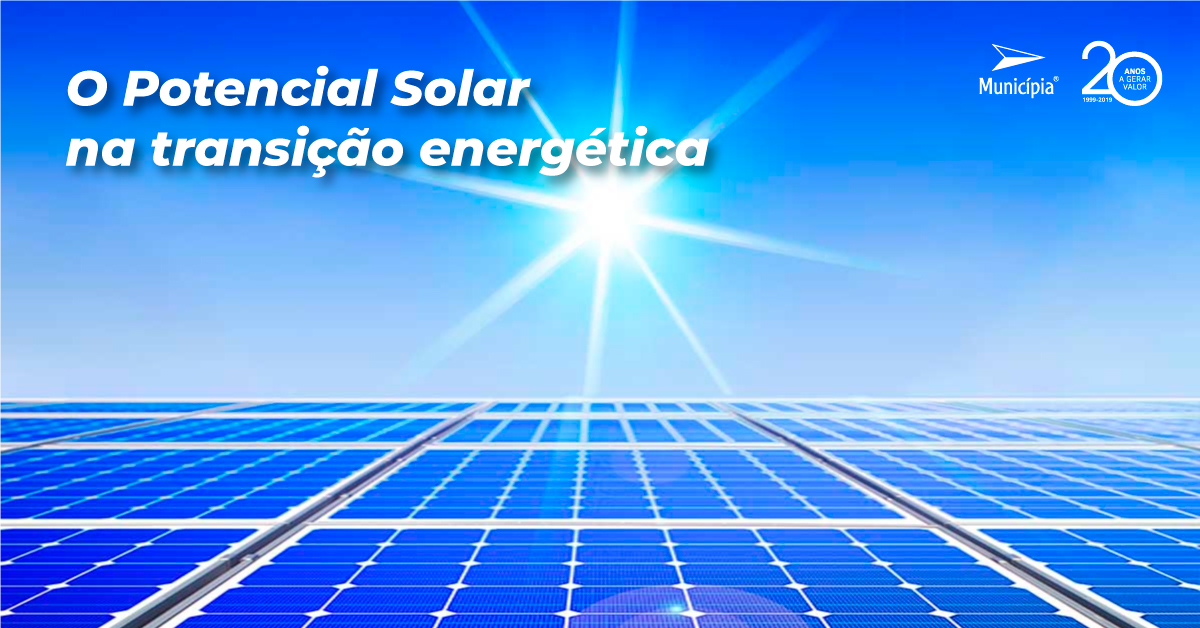
20 May The Solar Potential in the energy transition
May 3, 2020.
Sunday.
Mother’s Day.
Day that marked the end of the State of Emergency (COVID’19) in Portugal.
International Day of the Sun.
May 3rd was a day to believe that we all make a difference.
That we all have the potential to be carriers of good energy!
Sun’s day.
Sunday, for some the last day of the week, for others the first. In Latin Day of the Lord, in pagan culture, Day of the Sun.
The Sun is the source of life on Earth. This simple sentence shows us how all types of dependencies have an impact on people’s lives and daily lives.
NASA (National Aeronautics and Space Administration), on its online page, in the ten curiosities it states about the Sun, highlights the importance of this energy source for Life on Earth:
“ENERGY FOR LIFE – Without the Sun’s intense energy, there would be no life on Earth.”
https://solarsystem.nasa.gov/solar-system/sun/overview/
If the Sun is Life, then let us be able to retain, transform, enhance and distribute, as much as the source gives us!
Until today, the economic development of the Earth, at the planetary level, has been based on the exploration and use of fossil, non-renewable and polluting energy sources. To be non-renewable is to have an end announced and an alternative in urgency. Thus, there is room for the emergence of new forms of energy, which place renewable energies at the center of economic production and productivity, through the sustainable development of Brundtland for Our Common Future (1987, in https://sustainabledevelopment.un.org/content/documents/5987our-common-future.pdf).
But, if Nicolau Copernicus contested Ptolemy’s Geocentric Theory, stating with the Heliocentric Theory that in the organization of the solar system, the Earth revolves around the Sun, then an increasing awareness of the individual and collective contribution is required , on the potential of this energy source, the Solar Potential. And today, International Day of the Sun, let us then be consciously heliocentric.
The energy transition and the decarbonisation of society will be made through the close articulation between key factors: citizen, technology, community. In that order. In other words, the decarbonisation of society will take place with itself, based on the collective, supported by the individual action of each one of us.
The technology will present increasingly efficient solutions at the level of lesser need for resources for greater energy productivity at the same time that access to more environmentally efficient technology puts the citizen at the center of the solution.
Thus, the current energy transition will increasingly involve the effective participation of citizens through the performance of the dual role of consumer and producer of energy.
But how so? Will we, as citizens and customers, have our individual energy production system at home? Yes and no!
The citizen becomes an active agent in the energy production and consumption system. On the one hand, an informed citizen has the critical capacity to make efficient choices when purchasing equipment and contracting supply services. On the other hand, an informed citizen is also a potential producer, and in this context, his choice is reflected in the level of energy production: self-consumption and export of surplus to the grid.
Thus, not all of us will have our individual energy production system, but rather, as recipients of energy injected into the network by neighbors, we are in the community consuming the neighbor’s individual energy surplus, and thereby sustaining the self-consumption network, in community.
In Europe, the use of renewable energies, with a focus on strengthening self-consumption, individual and collective, was instituted by Directive 2018/2001, of 11 December 2018 (https://euricando/ legal-content / PT / TXT /? uri = celex: 32018L2001) revised in 2019 (https://euricando/legal-content/PT/LSU/?uri=CELEX:32018L2001).
In Portugal, individual and collective self-consumption and energy communities arrive by the publication of Decree-Law 162/2019 of 25 October, which transposing the European directive, frames and encourages self-consumption. In this way, citizens, companies and public entities are empowered to produce, self-consume, store and sell produced energy, through renewable resources, becoming immediately active agents in the context of the energy transition.
And at home, which source of renewable energy is at hand? The sun. Solar energy.
Everyone in our houses has sun, we receive sun, we need sun and, depending on each room, we can also produce energy from the sun we receive.
The sun, as an energy source, is renewable. The process of transforming energy into electricity is silent and non-polluting! The energy production system is easy to install and requires no maintenance.
Solar energy makes it possible to reduce external dependence, thereby lowering household expenditure on energy supply through contracting with a service provider. In case of sale of the property, the energy autonomy (although it may be partial and in complementarity with the commercial network) is unequivocally a factor of asset appreciation.
How can we be self-serving consumers and producers? What investment is needed to maximize the return?
If you do not know, and we believe you do not yet know, the Solar Potential ( https://www.potencialsolar.pt/ ), responds. And if the simulation is not available for your Municipality, know that soon you will be able to be an energetically active citizen and encourage your municipality to be an energy efficient territory.
We count on your potential, and why May 3 was International Day of the Sun, be heliocentric, and participate in the energy transition of your Municipality.




